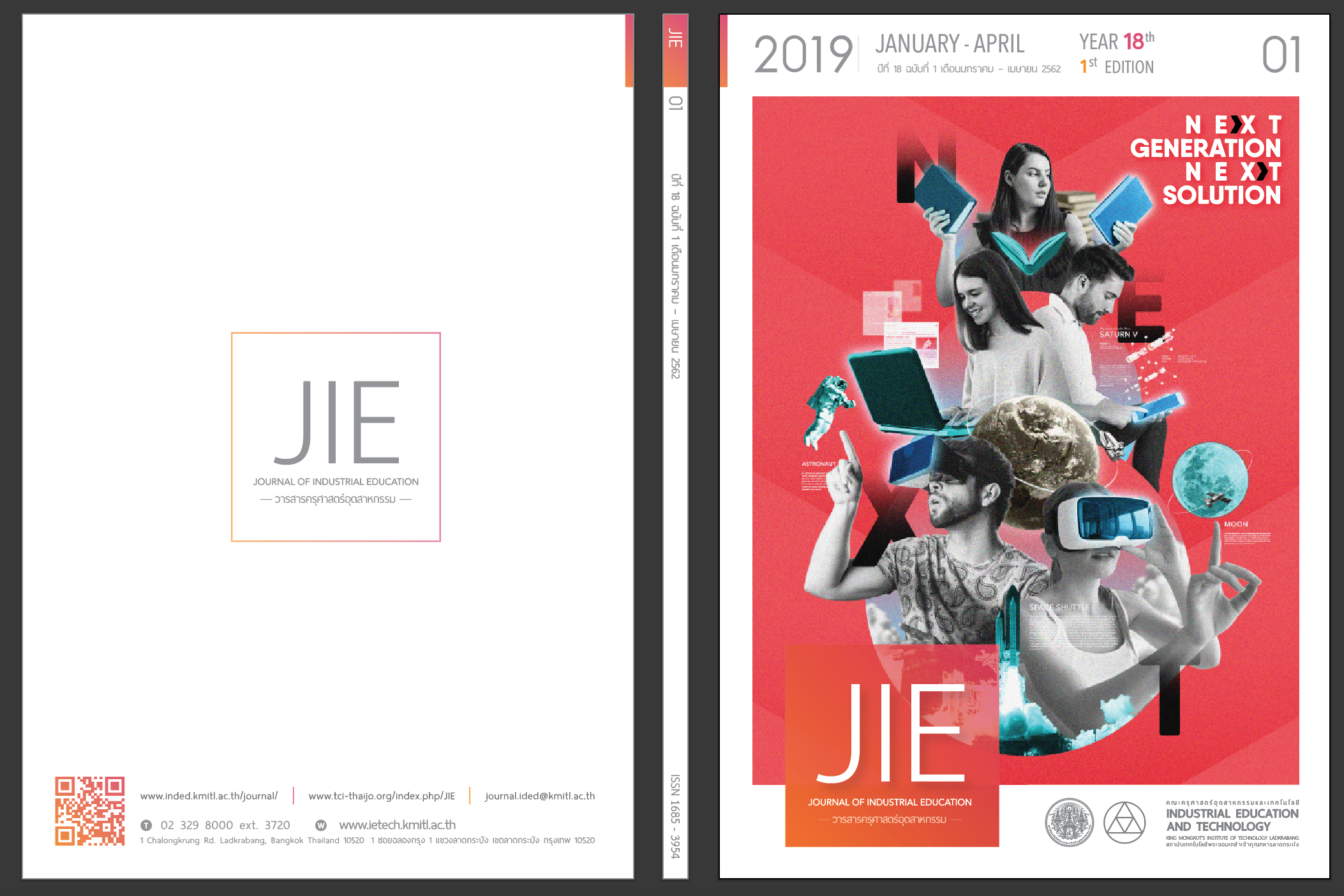THE EFFECTS OF ONLINE HOMEWORK ON FIRST YEAR PRE-SERVICE SCIENCE TEACHERS’ LEARNING ACHIEVEMENTS IN GENERAL CHEMISTRY
Keywords:
Online homework, Learning achievement, General Chemistry, Correlation, Normalized gainAbstract
The purpose of this research was to investigate the pre-service science teachers’ learning achievements and the correlations of online homework scores, post-test scores, final grading scores and normalized gain in general chemistry. The sample group consisted of 60 first year pre-service science teachers who were enrolled in General Chemistry (SCE 1401) at Suan Sunandha Rajabhat University. The tools for data collection were a learning achievement test and online homework of each unit. The statistics used for data analysis were mean, t-test for dependent samples, as well as normalized grain.
The results revealed that student post-test scores in general chemistry course were significantly higher than their pre-test scores at the 0.01 level. Student learning progression as, represented by normalized gain, increased after the online homework treatment. There was a positive correlation (0.309–0.845) among online homework scores, final grading scores and the normalized gain in this study. For this reason, online homework was considered as a qualified predictor of the student learning achievement score and final grading score. It is likely that the immediate feedback given after the online homework may have helped students realize which areas of development they needed to focus on before the examination. Additionally, it was discovered that the online homework may improve student learning habits in this general chemistry course.
References
Arasasingham, R. D., et al. 2004. Using Knowledge Space Theory To Assess Student Understanding of Stoichiometry. Journal of Chemical Education, 81(10), p. 1517–1523.
Kozma, R. B., and Russell, J. 1997. Multimedia and Understanding: Expert and Novice Responses to Different Representations of Chemical Phenomena. Journal of Research in Science Teaching, 34(9), p. 949–968.
Russell, J. W., et al. 1997. Use of Simultaneous-synchronized Macroscopic, Microscopic, and Symbolic Representations to Enhance the Teaching and Learning of Chemical Concepts. Journal of Chemical Education, 74(3), p. 330–334.
Cheng, K. K.,et al. 2004. Using an Online Homework System Enhances Students’ Learning of Physics Concepts in an Introductory Physics Course. American Journal of Physics, 72(11), p. 1447–1453.
Fynewever, H. 2008. A Comparison of the Effectiveness of Web-based and Paper-based Homework for General Chemistry. Chemical Educator, 13(4), p. 264–269.
Penn, J. H., Nedeff, V. M., and Gozdzik, G. 2000. Organic Chemistry and the Internet: A Web-Based Approach to Homework and Testing Using the WE_LEARN System. Journal of Chemical Education, 77(2), p. 227–231.
Charlesworth, P., and Vician, C. 2003. Leveraging Technology for Chemical Sciences Education: An Early Assessment of WebCT Usage in First-Year Chemistry Courses. Journal of Chemical Education, 80(11), p. 1333–1337.
Dohn, N. B., et al. 2016. Affording Opportunities to Learn in Homework Online. The 10th International Conference on Networked Learning 2016, p. 242–250.
Arasasingham, R. D., et al. 2005. Assessing the Effect of Web-Based Learning Tools on Student Understanding of Stoichiometry Using Knowledge Space Theory. Journal of Chemical Education, 82(8), p. 1251–1262.
Richards-Babb, M. and Jackson, J. K. 2011. Gendered Responses to Online Homework Use in General Chemistry. Chemistry Education Research and Practice, 12(4), p. 409–419.
Richards-Babb, M., et al. 2015. Student Perceptions of Online Homework Use for Formative Assessment of Learning in Organic Chemistry. Journal of Chemical Education, 92(11), p. 1813-1819.
Jadsada Ratniyom, Suttipong Boonphadung and Thassanant Unnanantn. 2016. The Effects of Online Homework on First Year Pre-service Science Teachers’ Learning Achievements of Introductory Organic Chemistry. International Journal of Environmental and Science Education, 11(15), p. 8088–8099.
Cole, R. S., and Todd, J. B. 2003. Effects of Web-Based Multimedia Homework with Immediate Rich Feedback on Student Learning in General Chemistry. Journal of Chemical Education, 80(11), p. 1338–1343.
Hall, R. W., et al. 2001. Automated, Web-based, Second-chance Homework. Journal of Chemical Education, 78(12), p. 1704–1708.
Lonn, S., and Teasley, S. D. 2009. Saving Time or Innovating Practice: Investigating Perceptions and Uses of Learning Management Systems. Computers & Education, 53(3), p. 686–694.
Olivier, G. W. J., Herson, K., and Sosabowski, M. H. 2001. WebMark—A Fully Automated Method of Submission, Assessment, Grading, and Commentary for Laboratory Practical Scripts. Journal of Chemical Education, 78(12), p. 1699–1703.
Teeracha Santhong, Piya Supavarasuwat and Wisuit Sunthonkanokpong. 2016. Development of an Online Grading and Submission System: A Case Study of Vocational Education Institute Center 1 Journal of Industrial Education, 15(1), p. 98–105.
Chamala, R. R., et al. 2006. EPOCH: An Organic Chemistry Homework Program That Offers Response-specific Feedback to Students. Journal of Chemical Education, 83(1), p. 164–169.
Lipscomb, T. 2018. Creating Quizzes with Google Forms. Retrieved November 12, 2018, from https://www.linkedin.com/pulse/creating-quizzes-google-forms-travis-lipscomb.
Chang, R. 2010. Chemistry. New York: McGraw-Hill.
Silberberg, M. and Amateis, P. 2014. Chemistry The Molecular Nature of Matter and Change. New York: McGraw-Hill Education.
Hake, R. R. 1998. Interactive-engagement versus traditional methods: A Six-thousand-student Survey of Mechanics Test Data for Introductory Physics Courses. American Journal of Physics, 66(1), p. 64–74.
Apisit Tongchai, et al. 2007. A New Assessment Method by Using Pre-test and Post-test Scores. HCU Journal, 11(21), p. 86–94
Parker, L. L. and Loudon, G. M. 2013. Case Study Using Online Homework in Undergraduate Organic Chemistry: Results and Student Attitudes. Journal of Chemical Education, 90(1), p. 37–44.
Bowman, C., Gulacar, O. and King, D. 2014. Predicting Student Success via Online Homework Usage. Journal of Learning Design, 7(2), p. 47–61.
Downloads
Published
How to Cite
Issue
Section
License
"The opinions and contents including the words in papers are responsibility by the authors."
"ข้อคิดเห็น เนื้อหา รวมทั้งการใช้ภาษาในบทความถือเป็นความรับผิดชอบของผู้เขียน"



